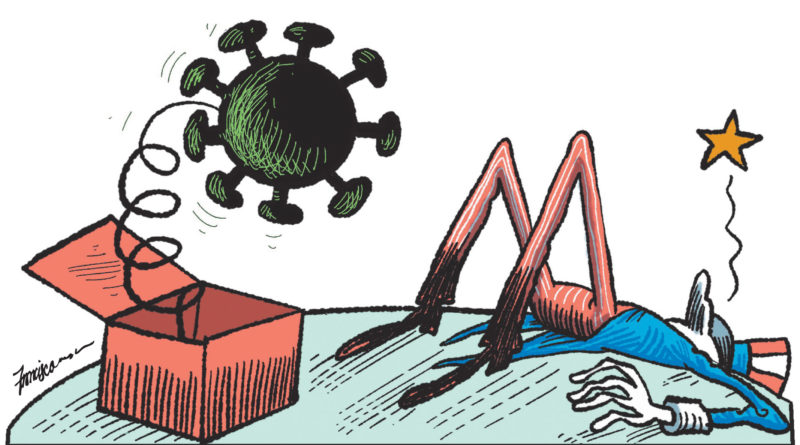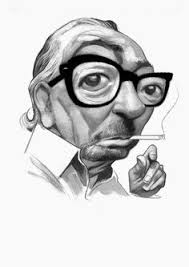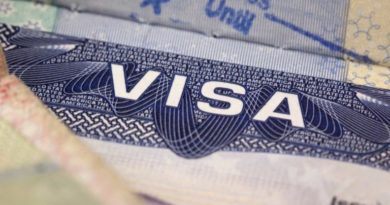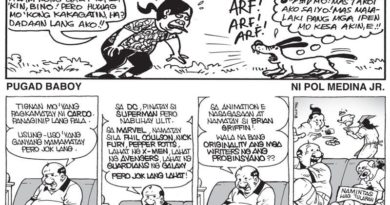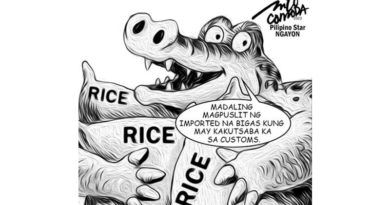OP-ED: COVID-19 SPECIAL: Global Affairs- Coronavirus outbreak: Worst intelligence failure in US history?
.
.
Recent reports suggest US intelligence agencies knew a health crisis was brewing in Hubei, China, as early as last November. Yet, the
.
LONDON • The coronavirus epidemic has already killed more than three times as many Americans as the 9/11 terrorist attacks in 2001. So, if the 9/11 tragedy was followed by a massive United States government inquiry, which looked into the failures of the American intelligence services to prevent those attacks, something similar is almost guaranteed to happen after the current health emergency is over.
Indeed, the reckoning has already started. Not a day goes by without some media revelation in the US, accusing the Trump administration of taking no action despite the fact that it was allegedly warned by US spooks and analysts about the impending epidemic.
.

Ads by: Memento Maxima Digital Marketing
@ [email protected]
– SPACE RESERVE FOR YOUR ADVERTISEMENT
Influential US political scientist Micah Zenko has already penned an angry article in Foreign Policy magazine claiming that the coronavirus disaster amounts to the “worst intelligence failure in US history”. And in a number of other key Western nations – particularly the so-called Five Eyes countries of Australia, Britain, Canada and New Zealand, which regularly share intelligence with the US – there are people making similar accusations.
Their charge is a familiar one: that the vast intelligence community with all its jet-setting spooks and breath-taking James Bond-like cutting-edge technologies were far too busy concentrating on imaginary threats to notice the real disaster coming our way: the coronavirus.
.

Ads by: Memento Maxima Digital Marketing
@ [email protected]
– SPACE RESERVE FOR YOUR ADVERTISEMENT
To use the cliched accusation often hurled at the intelligence services, the spooks allegedly failed to “connect the dots”, to identify the information that really mattered, and ring the alarm bells in the right circles.
What’s the point of spending vast intelligence resources playing cat-and-mouse games with some shadowy terrorist organisations halfway around the world, while failing to spot an epidemic that would go on to claim the lives of many more American victims than any criminal from the mountains of Afghanistan would ever be able to touch?
.

Ads by: Memento Maxima Digital Marketing
@ [email protected]
– SPACE RESERVE FOR YOUR ADVERTISEMENT
All of these are relevant points and, as time goes by and further information becomes available, we may well discover that the world’s top intelligence services did indeed commit grave errors.
But it is far more likely that the inevitable inquiries, which will be launched by several Western governments after this crisis is over, will come to the conclusion that the failure was less one of intelligence collection, and more of a lack of readiness of politicians to act on the information that their spooks provided.
In a news item that deserved greater attention, the ABC network in the US reported last week that American intelligence officers picked up as far back as late November hints that a health crisis of some sort was unfolding in China’s Hubei province, whose capital is, of course, the city of Wuhan.
According to the ABC report, the American intelligence analysts quickly concluded that what they were seeing was developing into a “cataclysmic event”, and duly reported this to their superiors.
.

Ads by: Memento Maxima Digital Marketing
@ [email protected]
– SPACE RESERVE FOR YOUR ADVERTISEMENT
The Pentagon hurried to deny this news story, claiming that no such “product or assessment” existed during the month of November. Yet nobody in Washington now bothers to deny persistent and by now multiple claims that the US intelligence community knew about a Chinese health emergency around Wuhan by mid-December, and that the US President himself was briefed about it at the beginning of January.
Other members in the Five Eyes structure are likely to have either acquired or shared the same information within the same timeframe.

.

Ads by: Memento Maxima Digital Marketing
@ [email protected]
– SPACE RESERVE FOR YOUR ADVERTISEMENT
In short, it is by now fairly well established that weeks and perhaps more than a full month before China officially admitted to the epidemic, some people within the intelligence community in the West knew about it, and almost certainly knew that this was a significant event.
So, why weren’t alarm bells raised and why did governments not move into higher preparedness?
.

Ads by: Memento Maxima Digital Marketing
@ [email protected]
– SPACE RESERVE FOR YOUR ADVERTISEMENT
ASSESSING THREATS
One – albeit indirect – explanation for the apparent disconnect between what the spooks knew and the lack of political action is buried deep inside the details of the ABC report, which alleges that US knowledge of the epidemic goes back to November.
The report suggests that the agency which apparently picked up this information was the so-called National Centre for Medical Intelligence (NCMI). This is a small component within the much bigger US Defence Intelligence Agency, and it’s a specialised unit whose job is precisely that of alerting the Pentagon to diseases and epidemics around the world.
.

Ads by: Memento Maxima Digital Marketing
@ [email protected]
– SPACE RESERVE FOR YOUR ADVERTISEMENT
.

Ads by: Memento Maxima Digital Marketing
@ [email protected]
– SPACE RESERVE FOR YOUR ADVERTISEMENT
What is important to note here is that the NCMI’s chief task is to identify health threats to US troops around the world, rather than to the territory of the US. So it is quite feasible that the Pentagon’s denial of any knowledge of an early NCMI warning about Wuhan is correct, but that does not eliminate the possibility that the NCMI was nevertheless looking at developments in Wuhan and treating this information as a potential threat to US soldiers stationed in Asia. In short, the information could have been within the US intelligence system since November, but it was simply not treated as one of national significance.
A similar explanation applies to the apparent low interest from the US and other Western intelligence agencies when evidence of the humanitarian crisis in Wuhan became overwhelmingly clear around mid-December; the agencies were simply not geared to digest and interpret such information properly
.

Ads by: Memento Maxima Digital Marketing
@ [email protected]
– SPACE RESERVE FOR YOUR ADVERTISEMENT
For the traditional products of intelligence consist of the collection and analysis of the intent and capabilities of an adversary, in order to support national security objectives. The public at large may believe that this definition should include threats to public health. But in reality, assessing global health outbreaks has traditionally been the responsibility of specialised public health bodies like the US Centres for Disease Control and Prevention and its equivalents in other countries.
It is very likely that the information collected by intelligence agencies about the onset of the epidemic in Wuhan was analysed – at least in its incipient stages – as primarily a development affecting China itself, rather than one presenting an imminent danger to the world. If true, this was clearly a grave oversight. But it was also an understandable one.
.

Ads by: Memento Maxima Digital Marketing
@ [email protected]
– SPACE RESERVE FOR YOUR ADVERTISEMENT
For stories about domestic and fairly secret health emergencies inside China – usually as a result of some environmental or industrial disaster – are not exactly rare, so it would have been some time before the true significance of the Wuhan tragedy emerged.
And even if the true nature of the health problem in Wuhan became clear – something that undoubtedly took weeks, since the initial information came merely from wire and computer intercepts – it would have required epidemiologists, rather than just intelligence analysts, to properly interpret their global health significance.
By the time the epidemic made it into the US President’s daily brief of intelligence matters in early January, the material would have gone through weeks of vetting and analysis, and the advantage of dealing with the epidemic at an earlier stage was lost.
.

Ads by: Memento Maxima Digital Marketing
@ [email protected]
– SPACE RESERVE FOR YOUR ADVERTISEMENT
POLITICIANS’ RESPONSES TO HEALTH EMERGENCY
But why did it take governments even longer thereafter to start taking practical measures in preparation for the onslaught of the virus? Here, it’s the politicians and not the intelligence services who must answer.
It is by now fashionable to blame President Donald Trump for refusing to take warnings seriously until it was far too late. But the sad truth is that, with the notable exception of a few Asian nations that have a longer and more recent experience of epidemics, all Western governments were unprepared for the emergency.
It was not only Mr Trump who abolished the White House’s dedicated office on global health security; Mr Barack Obama did exactly the same in 2009.
.

Ads by: Memento Maxima Digital Marketing
@ [email protected]
– SPACE RESERVE FOR YOUR ADVERTISEMENT
.

Ads by: Memento Maxima Digital Marketing
@ [email protected]
– SPACE RESERVE FOR YOUR ADVERTISEMENT
The security strategies of every Western nation included a section on pandemics; for a decade now, Britain’s National Security Risk Assessment identified a major public health disaster, and in particular pandemic influenza, as a “tier one” threat to British national security.
But in reality, few governments planned for this supposedly major threat. And that’s for very understandable political reasons.
Building spare capacity in national health services for emergencies is not a cheap proposition, especially when there is literally no limit to how much one can spend to deal with existing health demands.
And there are also political risks in responding too soon to intelligence advice about an impending epidemic.
.

Ads by: Memento Maxima Digital Marketing
@ [email protected]
– SPACE RESERVE FOR YOUR ADVERTISEMENT
.

Ads by: Memento Maxima Digital Marketing
@ [email protected]
– SPACE RESERVE FOR YOUR ADVERTISEMENT
Those who still doubt this proposition are well advised to look at the story of Mrs Roselyne Bachelot, who served as France’s health minister a decade ago. The moment she got a government warning about the onset of the H1N1 swine flu in early 2009, she mobilised her ministry and spent hundreds of millions of euros on buying vaccines and medical protection equipment; a few months later, France had a stock of 1.7 billion face masks.
But the virus made little impact in France, the face masks languished in warehouses and were ultimately destroyed, and Mrs Bachelot became the laughing stock of France. She was ultimately hounded out of office for wasting taxpayers’ money. Had Mrs Bachelot been in her post today, she would have become one of the world’s most famous politicians. Instead, her career ended in disgrace.
Either way, what we are witnessing now is not so much the failure of the intelligence community to “connect the dots”, but rather a failure to understand the true significance of a health emergency that it identified, largely because of the way intelligence communities are traditionally tasked to operate.
Those who really failed to connect the dots and act on information that was available are the politicians. And it is now up to them to rewire their intelligence agencies so that similar disasters may be averted.
.

